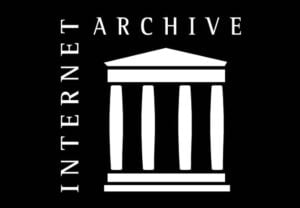 In 2020, publishers Hachette, HarperCollins, John Wiley and Penguin Random House sued the Internet Archive (IA) for copyright infringement, equating its ‘Open Library’ to a pirate site.
In 2020, publishers Hachette, HarperCollins, John Wiley and Penguin Random House sued the Internet Archive (IA) for copyright infringement, equating its ‘Open Library’ to a pirate site.
IA’s library is a non-profit organization that scans physical books, which can then be lent out to patrons in an ebook format.
Staying true to the centuries-old library concept, only one patron at a time can get a copy. These restrictions were temporarily loosened at the height of the Covid epidemic when IA launched the National Emergency Library.
Mass Copyright Infringement or Fair Use?
The publishers see IA’s library as a rogue operation that engages in willful mass copyright infringement, directly damaging their bottom line. As such, they want it permanently taken down.
“Without any license or any payment to authors or publishers, IA scans print books, uploads these illegally scanned books to its servers, and distributes verbatim digital copies of the books in whole via public-facing websites,” their complaint reads.
The publishers are not against libraries per se, nor do they object to ebook lending. When lending digital content, ‘authorized’ libraries typically obtain a license or negotiate specific terms. The Internet Archive has no such license.
The Internet Archive wholeheartedly disagrees with the copyright infringement allegations. Stressing that the library offers a vital service, Internet Archive’s defense centers on the legal concept of fair use.
The Archive states that making a digital copy of a physical book ‘transforms’ the original work before it is loaned to one patron at a time. That would qualify as fair use, they argue, especially since there is no profit motive.
Another factor in favor of fair use is the fact that there are numerous benefits to the public at large. There is also no evidence to show that the book publishers’ sales or traditional licensing revenues were impacted.
New York Court Hearing
Over the past two-and-a-half years, the parties have gone back and forth in court, disputing each other’s arguments. This eventually resulted in contrasting motions for summary judgment, with both sides hoping for a ruling in their favor ahead of the trial.
Yesterday, IA and the publishers had the opportunity to back up their positions during a New York District Court hearing. Both parties laid out their cases and were questioned by District Court John Koeltl.
The publishers’ attorney Elizabeth McNamara pointed out that the IA strives to make all knowledge available for free, but doesn’t want to compensate rightsholders for their works.
“IA does not want to pay authors or publishers to realize this grand scheme and they argue it can be excused from paying the customary fees because what they’re doing is in the public interest,” she said, quoted by The Register.
The publishers’ attorney added that IA’s lending platform directly harms authors and publishers, but Judge Koeltl didn’t see any direct evidence of harm. IA’s attorney Joseph Gratz said evidence of harm doesn’t exist.
“There’s no evidence that the publishers have lost a dime,” Gratz said, as quoted by Ars Technica.
Unauthorized Reproductions
The four-factor fair use test that applies in these cases isn’t straightforward, but a Reuters report highlights some interesting comments from Judge Koeltl.
Koeltl stressed that libraries absolutely have the right to lend books that they own but in this case, IA goes a step further by making a digital copy, a reproduction of the original work.
“You avoid the question of whether the library has the right to reproduce the book that it otherwise has the right to possess, which is really at the heart of the case,” Koeltl said, noting that “the publisher has a copyright right to control reproduction.”
IA’s attorney responded by pointing out that the reproductions serve a ‘transformative’ purpose in this case, while adding that every fair use case deals with copies or reproductions by definition.
Battle For Libraries
The above is just a fraction of the legal arguments under discussion. While in essence this is a copyright dispute subject to existing law and jurisprudence, it’s exemplary of a bigger problem.
The publishers are not only up against IA; a large public movement has formed in support. This includes Fight for the Future’s “Battle for Libraries” campaign, which argues that the publishers act as malicious gatekeepers, preventing the free flow of information and undermining libraries’ ability to serve their patrons.

The general complaint is that publishers want to control and restrict digital access to books through relatively expensive licensing agreements. This serves a commercial purpose, but can also be used to censor content and restrict access whenever they see fit.
The issue also attracted the attention of Creative Commons founder and Harvard Law Professor Lawrence Lessig, who describes this as a critical moment in the history of culture.
“The lawsuit that the Internet Archive faces will determine whether the business model of culture is the commercial model alone, or whether there will continue to be a place for libraries,” Lessig notes.
Lawmakers have taken an interest in the dispute too. A few months ago, U.S. Senator Ron Wyden and Congresswoman Anna Eshoo sent a letter to the major publishers, asking them about their restrictive lease terms for ebooks.
“Many libraries face financial and practical challenges in making e-books available to their patrons, which jeopardizes their ability to fulfill their mission,” their letter reads.
“It is our understanding that these difficulties arise because e-books are typically offered under more expensive and limited licensing agreements, unlike print books that libraries can typically purchase, own, and lend on their own terms.”
These comments show that this isn’t just another copyright lawsuit. Whatever the immediate outcomes of the pending motions and trial, this matter is likely to be contested all the way to the Supreme Court.





